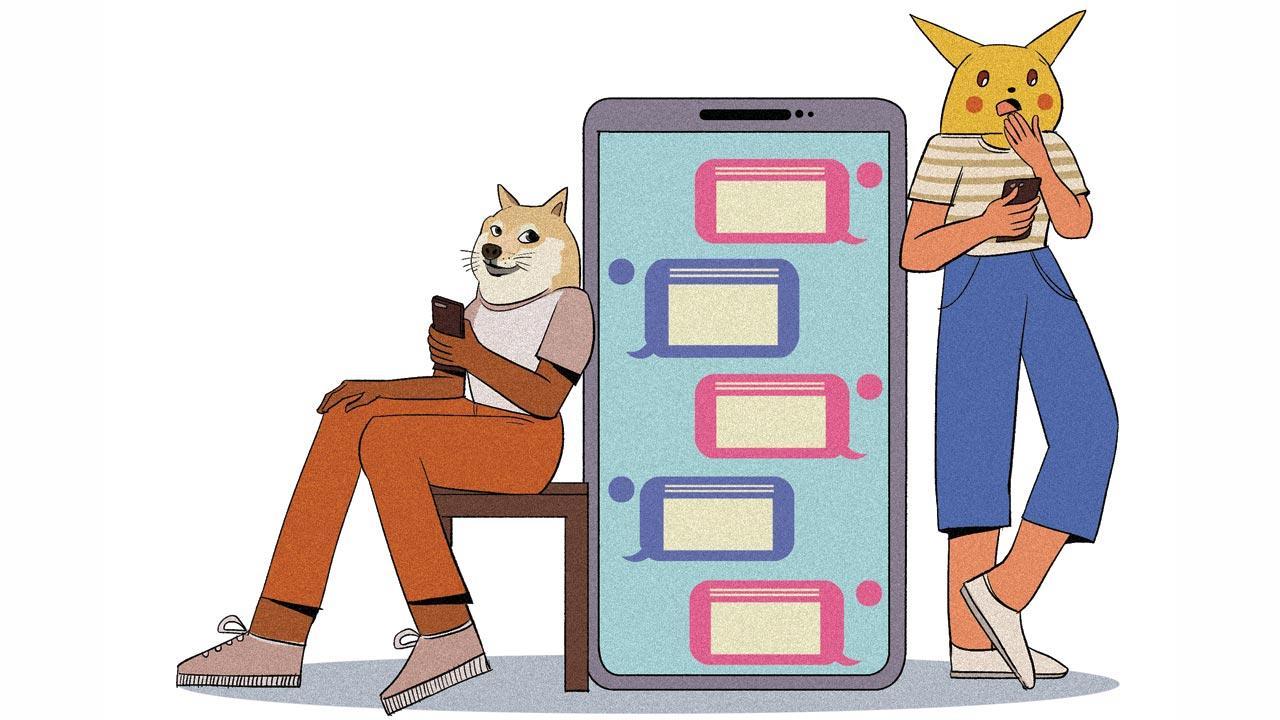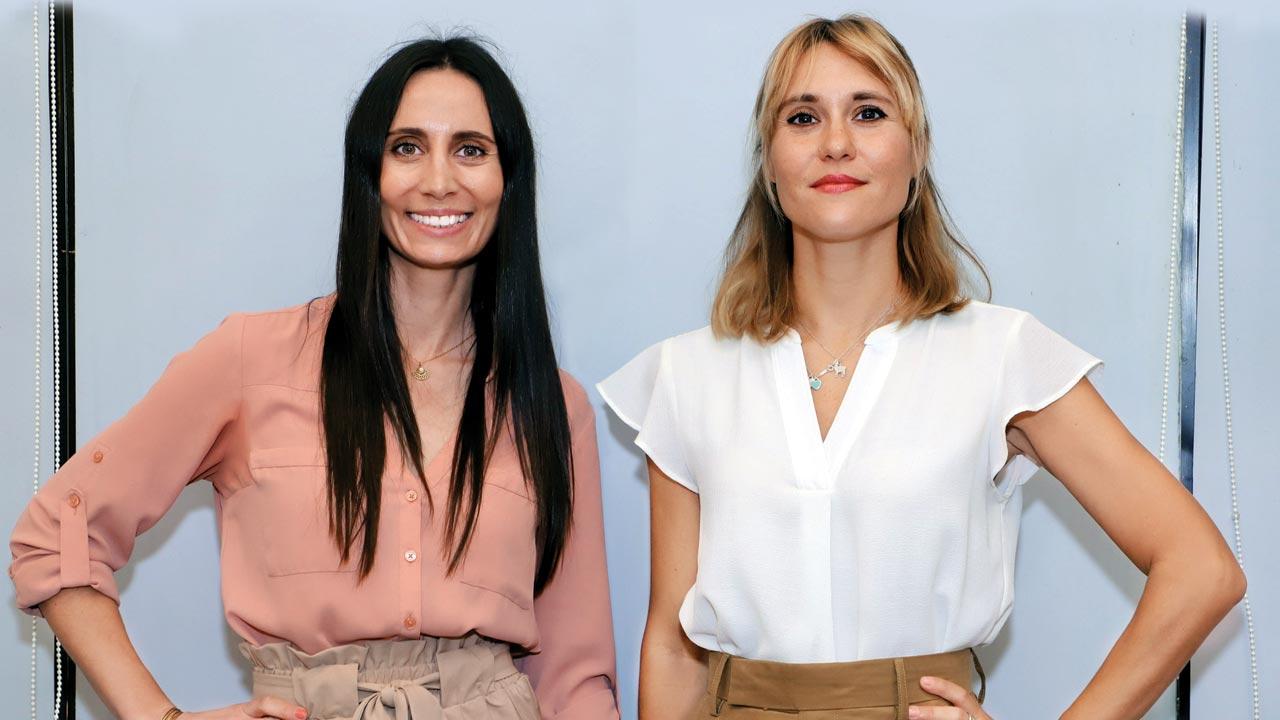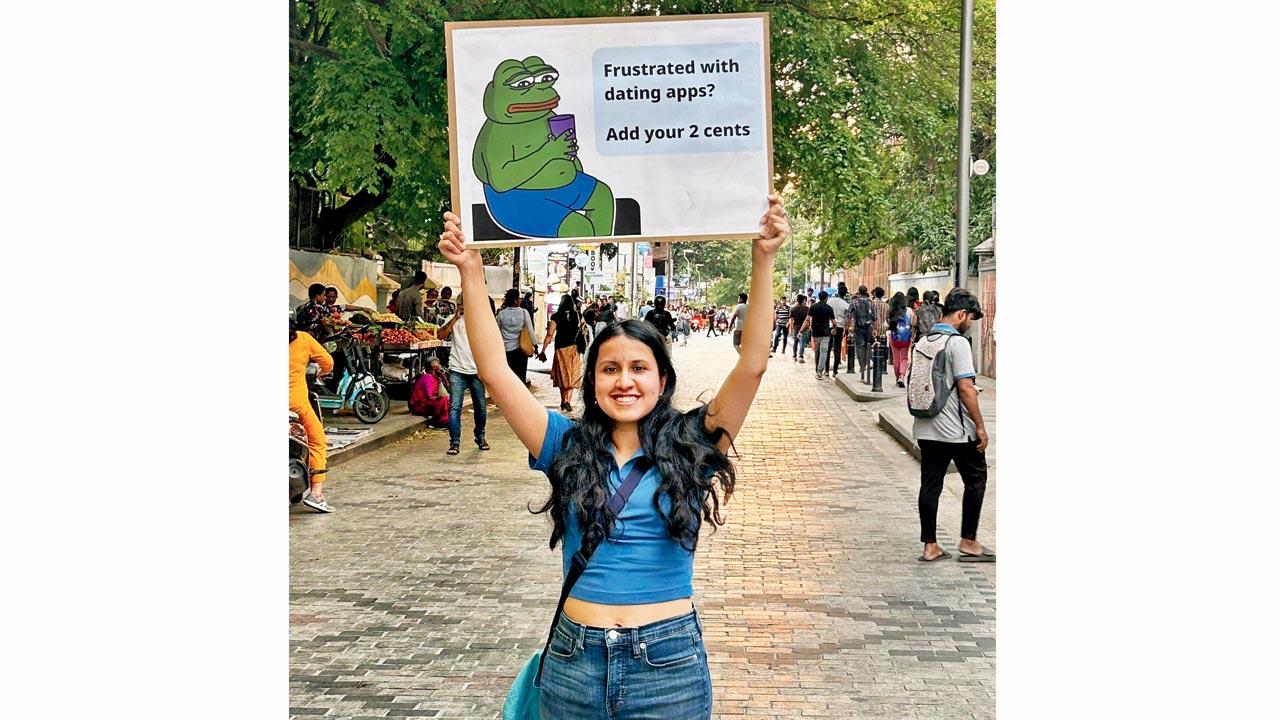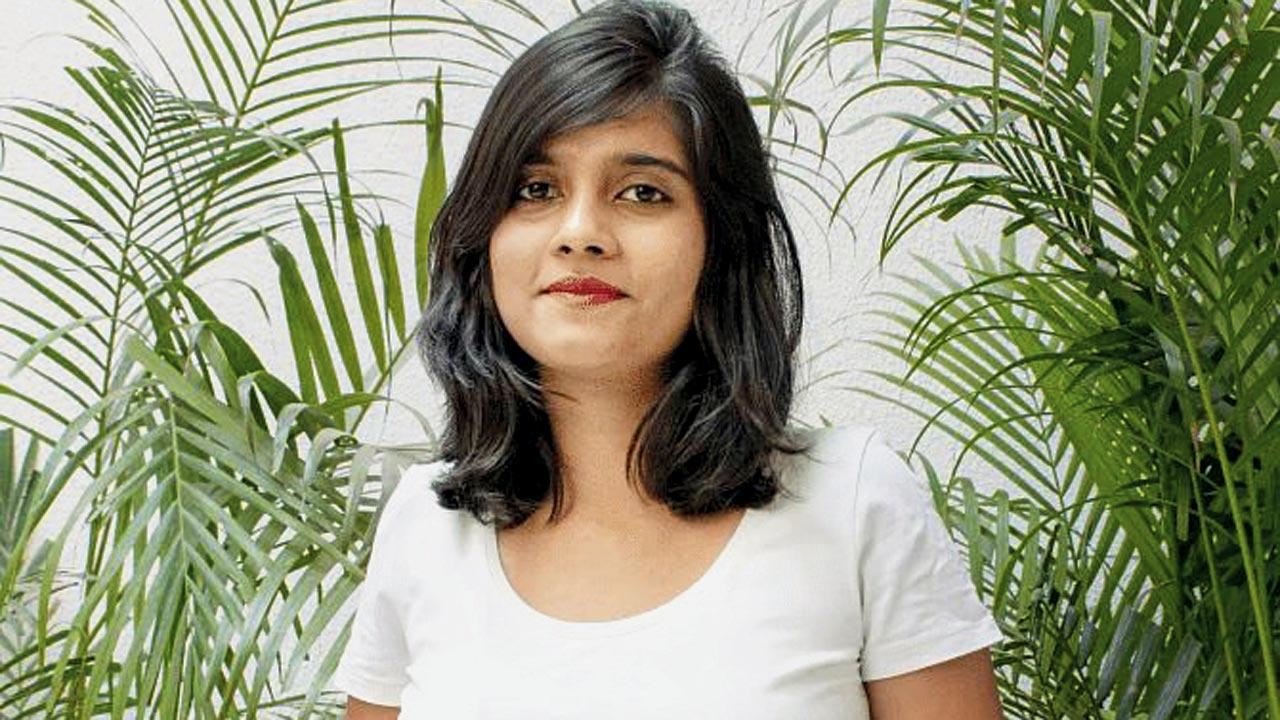Funding, retaining users, fighting global competitors—running a niche dating app in India is far from easy. Catering to women’s needs and creating a distinct identity are key to surviving, founders of old and new apps, as well as investors, reveal

Illustration/Uday Mohite
AI prompt generator, sneaker copper, influencer manager—the last decade has birthed unimaginable jobs.
At the US office of Schmooze, a meme-centric dating app developed by a Stanford University alumna, nearly every job profile fits into this category. “Meme officers” are especially crucial to the system—they determine the “vibe” of the content. Users who choose the same memes—designed by meme officers—are matched by the algorithm; the individuals then bond over shared interests and laugh over common miseries. It’s the epitome of the 21st century “happily-ever-after”. Built on the belief that memes are representative of humour and intellect, and a legitimate way of communicating and finding common ground with a potential partner, the app has been wholeheartedly accepted in Indian cities since its launch in September 2023.
 (Left to right) Solene Paillet, Gleeden’s Marketing Head and Sybil Shiddell, Country Manager, India. Gleeden has made considerable in-roads in India, particularly among homemakers
(Left to right) Solene Paillet, Gleeden’s Marketing Head and Sybil Shiddell, Country Manager, India. Gleeden has made considerable in-roads in India, particularly among homemakers
It responds to two uniquely Indian hurdles, as identified by co-founders Vidya Madhavan and Abhinav Anurag: The first that Indian women are hesitant to use dating apps because of their associations with casual sex; and second that Indian men struggle with initiating conversations, a move in the dating waltz that is considered their responsibility. Memes resolve both issues and infusing a wholesome, familiar flavour into online dating which continues to intimidate many Indians.
In the app’s initial days, some in the investing circles asked if memes would have a limited audience. When mid-day caught up with Madhavan, she proudly shared that Schmooze was expected to cross a million subscribers soon, with a significant proportion of users based in India—considered the fifth fastest growing market in the dating app segment. In fact, since 2021, nine out of 10 Gen-Z Indians are actively on them.
 In India, a dating app can succeed only if you’re solving for women, says Schmooze co-founder Vidya Madhavan
In India, a dating app can succeed only if you’re solving for women, says Schmooze co-founder Vidya Madhavan
Globally, this industry is dominated by two players—Bumble and the Match group—whose portfolio includes apps such as Tinder, Hinge, and OkCupid. “Across the spectrum of matchmaking and dating,” says Neha Reddy, an associate at the venture capital firm Antler India, “we’ve seen Indian players such as Truly Madly, Aisle, QuackQuack, and Betterhalf try to capture the market share. While these platforms can grow to millions of downloads, the challenge remains in monetisation, one that is faced by global counterparts as well.”
For dating apps such as Schmooze, triumphs lie in proving that niche dating can play cupid and facilitate bonds. Their journeys are not without challenges and struggles—with funding, addressing user needs and navigating the Indian social and business landscape.
 Inclov, co-founded by Kalyani Khona (pictured here) and Shankar Srinivasan, matched users who went on to get married and become parents
Inclov, co-founded by Kalyani Khona (pictured here) and Shankar Srinivasan, matched users who went on to get married and become parents
MEMES defy definition, especially in the way that they can bring two people closer. Madhavan was struck when one user from India relayed that he spent five hours speaking to a woman—now his girlfriend—during their first interaction. “Using the app led them to discover that they have three things in common—overthinking, drunk stories, and annoying relatives,” she says. “I don’t know if these are subjects that would have come up on a first date.”
A Google Play review of the app from a male user highlights that it gives him a limited set of matches per day. Madhavan tells us that this is not an accident or a result of a small user base, but rather a part of the app’s design. “A lot of maths has gone into the optimal number of matches each person should receive,” the co-founder explains. “Schmooze doesn’t want to be the kind of app where you swipe a hundred times and get only three matches. This is why our conversion funnel is better than our peers.”
In the early days in India, Schmooze had a presence in only six cities. They bled users every day as disappointed people deleted the app when they found that it was not present in their location. Acting on this response, Madhavan and co. decided to offer them the option to connect with those not within a geographical boundary, to much success. “Unlike in the US, Indian users, especially in non-metro cities, are not held back by distance because romantic interactions with people of the opposite sex tend to be limited,” she says.
Memes are not simply a source of laughter; they also use dark humour and touch upon subjects such politics, social divides, and mental health. Madhavan says that Schmooze’s approach acknowledges this reality while also recognising that many users enjoy it. “We have an exploration/exploitation type of algorithm,” she says, “We show you a good amount of what you may like, and keep experimenting to see what else you may enjoy. Further, if one user likes dark humour and the other doesn’t, they won’t be matched.”
In the manner of dramatic entrances in the Bollywood vein, the extramarital relationship app Gleeden arrived on our shores from (where else but) France in 2017—a year before Indian courts ruled that adultery was no longer a criminal offence. Founded in 2009, Gleeden is a “by women, for women” platform that wanted to undo people’s preconceived notions about infidelity, especially on the lines of gender. “Infidelity has always been associated with men—with sex, depravity, deception, and lust. In reality, affairs translate mostly as virtual escapades sought to briefly escape from everyday routines. And women need and look for these fantasies as much as men,” says Sybil Shiddell, the platform’s Country Manager in India. Tellingly, home-makers form a significant portion of its users here.
The app set out to fill a void in the Indian dating scene, and cater to the needs of those looking for relationships outside of marriage by giving them a private, judgement-free space to chat. “India’s multicultural makeup, and changing views on monogamy and relationships created a favourable atmosphere for Gleeden to flourish,” Shiddell says, crediting the platform’s focus on secrecy and anonymity for its success. Today, Indians make up 28 per cent of Gleeden’s total global users. A poll of 1,500 users from Tier-1 and Tier-2 cities revealed that they had signed up for a variety of reasons: From establishing new acquaintances to looking for companionship or examining current relationships.
Did the team worry about response from more conservative corners? Shiddell admits that this was not an unfounded concern; Gleeden could have easily caused controversy and encountered opposition from groups that support conventional marriage and fidelity norms. “It’s important to remember though that opinions in India regarding marriage and relationships are changing, especially among a younger demographic which is increasingly willing to consider unconventional relationship forms.”
The numbers speak for themselves, complicating what we know about pleasure and monogamy. The abrogation of Section 497 of the Indian Penal Code (adultery) and the COVID-19 pandemic led to a skyrocketing in subscriptions. “Between March 2020 and January 2023, the user-base grew by 12 lakh,” Shiddell informs, “According to the latest data, the number of Indian users has reached 2.8 million; and in 2023 alone, we registered over 7,40,000 new downloads and subscriptions, representing a startling 383 per cent increase from the previous year.”
There’s much to learn from niche dating apps that bid their users goodbye too. When it launched in 2016, Kalyani Khona and Shankar Srinivasan’s Inclov was touted as India’s first disability-inclusive dating app, opening up new avenues for the community and its loved ones, who hoped to see them find love without bias and discrimination.
The app, developed over five months, also played Cupid to those with colour blindness, visual disabilities, and retina disorders. Khona recalls that at the time, coding-related challenges even limited X’s (then called Twitter) accessibility, making Inclov one-of-a-kind. As a new user was onboarded, they could pick from a number of accessibility features to suit their needs. “The app was integrated with Google and iPhones’ talkback feature,” she explains, “We ensured everything was labelled and customised in the User Interface for the visually disabled. It had a voice notes feature, which was not yet a common element in [other] apps.”
Later, it welcomed able-bodied users too, and in the process undid some of the biases associated with disabled people, who are seen as asexual or uninterested in romance, or better suited to date and marry people within the disabled community. At its peak, Inclov had 20,000 matches and 50,000 users, of which a large proportion were active daily and weekly users, says Khona.
Notably, the company raised funding twice, with investors backing it as a solution to a social problem faced by an underserved community. It was an investment driven by the inherent commercial value as well as a do-good sentiment. “To be honest, they were all in it for my dream. Even when we ran into losses and shut the company down, they seemed sadder that the Inclov project would be discontinued,” she says. The investors recognised the strides made beyond the balance sheet—especially when the United Nations hailed the app as a global case study.
Though Inclov’s journey may have halted, its impact lives on through the love stories it enabled, as well as ‘Inclov babies’ “We met a number of amazing women who were worried that having children and families were unattainable dreams because marriage itself seemed a hurdle,” says Khona. “It’s been heartwarming to watch them have babies.”
This has shaped the way Khona sees herself, giving her a unique sense of closure and satisfaction. “It’s a salt-and-water situation,” she says. “Once the salt dissolves in the water, you cannot quite separate the two to study the exact impact the salt had. Inclov moulded my own views on marriage, and changed what I wanted in a life partner.”
Dating app makers may be assumed to be largely millennial or Gen-Zs, but Neha Reddy says they come from different age groups and backgrounds, approaching the segment as a massive, exciting opportunity. “They attack the problem statement through multiple arcs, from AI matchmaking to community-led solutions,” she says, “Currently, we’re witnessing incremental product innovations… But I believe the segment needs rethinking on how the younger generation
approaches dating.”
While she cites Schmooze as an interesting example of a platform built around a strong consumer insight, Reddy also draws our attention to thursday—an app that allows users to match and chat only for 24 hours on the day before Friday, after which their messages disappear. This, they believe, pushes users to shift the conversation to an in-person date. The company also organises meet-ups in 60 cities across the world—spaces that are not held back by pressures of speed dating or mixers.
In 2023 alone, angel investor Akshay Punjabi was approached by three individuals seeking to build dating apps. What struck him was that each founder wanted to customise the experience to Indian sensibilities rather than ape global models—a crucial way to distinguish oneself in winner-takes-all market. The term denotes a system where top competitors thrive at the expense of those who don’t perform.
“I look for a key differentiator that will make a founder stand out, scale up and monetise,” says Punjabi, “If you attempt to build a challenger to an established app like Bumble, it is only a matter of time until the money runs out. Investors are also drawn to the potential of niche apps to be absorbed and integrated by larger players, giving us a favourable exit. If I think that a potential app could be incorporated into a Tinder, I’d definitely be more drawn in.” And an app for the differently abled, or those with NSFW sense of humour seeking bonds outside marriage would definitely do that.
Gleeden’s adult(ery) content
2.8 m
Total users in 2024
383 per cent
User growth from 2023 to 2024
 Subscribe today by clicking the link and stay updated with the latest news!" Click here!
Subscribe today by clicking the link and stay updated with the latest news!" Click here!






